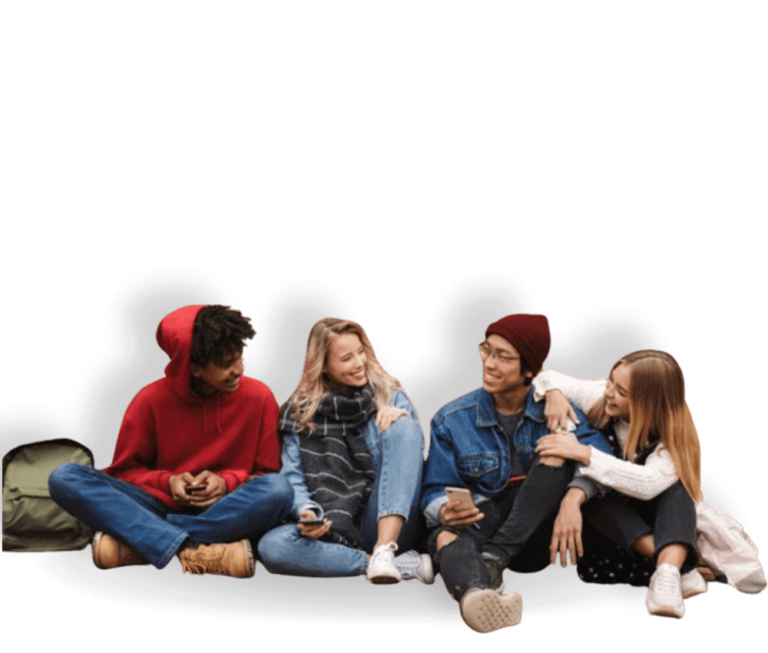
Cannabis:
for youth by youth
Youth-led interactive presentation to help students understand the effects of cannabis
Substance Use & Addiction Program
Youth speakers share personal stories about their challenges with cannabis use to increase awareness and knowledge around the associated risks, as well as to improve behaviours/attitudes in youth and young adults on safer use of cannabis.
See below for resources.
Speak. Inspire. Change.
About the YouthSpeak Team
We promote youth mental health and well-being to increase the resiliency of youth facing challenges. Through leadership, training, and sharing personal stories, YouthSpeak empowers youth to build resilience, hope, and coping strategies in challenging times such as now.
The goal of the Substance Use and Addictions Program is to increase awareness and knowledge around the risks associated with cannabis use, as well as to improve behaviours/attitudes in youth and young adults on safer use of cannabis.
Where to get mental health addictions help:
Kids Help Phone
(Available 24/7) Call: 1-800-668-6868 or text 686868
Good2Talk
Call: 1-866-925-5454 or text "GOOD2TALKON" to 686868
Good2Talk provides free, confidential support services for post-secondary students in Ontario
Wellness Together Canada
Mental health and substance use support
(Available 24/7): Call 1-866-585-0445
MOBYSS (12-25)
The Mobile Youth Walk-In Clinic (MOBYSS) offers a safe space to talk to a medical or mental health professional in a warm, welcoming, and friendly environment.
Call: 289-879-2376
Resources:
Tip Sheet Substance Misuse
Signs of Misuse and Coping Skills that May Work for You
Canada’s lower-risk cannabis use guide for youth
This youth education resource provides information on safer ways to use cannabis using evidence-based recommendations.
Sensible Cannabis Education: A Toolkit for Educating Youth
This resource aims to support adults in having informed and non-judgmental conversations with young people about cannabis.
Talking Pot with Youth - A Cannabis Communication Guide for Youth Allies
Provides introductory information and a set of exercises to engage youth in meaningful discussions and conversations about cannabis. This guide takes a harm reduction approach to talking with youth about cannabis.
What is Harm Reduction
Strategies that help guide individuals who choose to use cannabis make safer choices regarding cannabis use:
Be cautious sharing joints or cannabis implements with others
Do not drive after using cannabis
Avoid using while pregnant
Be aware that the effects of edibles can be very delayed
It is safest to delay the age of use. The brain continues to develop until 25 years
If you are using cannabis, consider using products with higher CBD content and lower THC
Use in a safe environment
Remember that smoking cannabis may cause lung damage; other forms are safer for overall health (ex. edibles)
Purchase from a dispensary
Avoid using synthetic forms of cannabis (ex. K2, Spice)
Avoid mixing cannabis with other drugs & substances such as alcohol
If smoking, avoid inhaling deeply & holding breath
FAQ
What should I do if I feel pressure to use cannabis?
You have the right to say no to using cannabis as well as to access resources to make informed choices
What is cannabis?
Cannabis is a plant and substance that has psychoactive effects. The main compounds or “cannabinoids” in Cannabis are delta-9-tetrahydrocannabainol (THC) and cannabidiol (CBD).
What are other names for cannabis?
Other names to refer to cannabis include marijuana, pot, dope and weed.
What are the effects of consuming cannabis?
Cannabis impairs coordination and reaction time. Individuals who consume cannabis should not drive to prevent serious motor vehicle accidents. – Smoking tobacco or cannabis can cause health complications to your lungs. Cannabis health effects – Canada.ca
Speak. Inspire. Change.
Book
Now

Engaging the power of stories for youth mental health.

